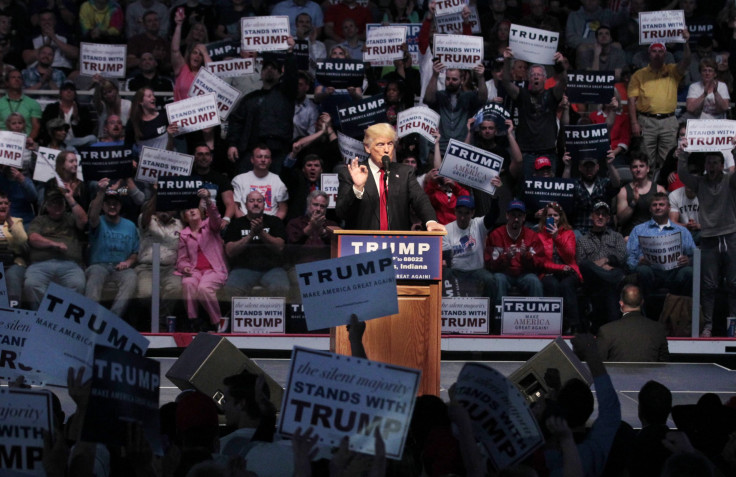Election Calendar 2016: What Primaries And Caucuses Are Left Before The Democratic and Republican Conventions?

The Democratic and Republican primaries are pretty much a done deal, according to many political analysts who have done the math. But try telling that to Texas Sen. Ted Cruz and Vermont Sen. Bernie Sanders.
Candidates on both sides of the aisle are refusing to bow out, despite numbers that suggest there is no way any candidate can catch Hillary Clinton on the Democratic side or Donald Trump on the Republican side. But those hopeful politicians, which also include Republican Gov. John Kasich of Ohio, are running out of campaign trail to mount their supposed comebacks — or at least bar the front-runners from winning the nomination outright before the July convention.
On the left, Clinton has consistently held a sizeable lead over Sanders in pledged delegates, currently leading by a count of 1,645 to 1,318. However, superdelegates have inflated that lead to 2,165 delegates for Clinton to Sanders' 1,357 delegates. While Sanders has no realistic shot to make up the gap (even the pledged delegate count), the senator has maintained that superdelegates can still be convinced to change their minds and turn the tide in the aggressively contested race.
“If I win a state with 70 percent of the vote, you know what? I think I am entitled to those superdelegates,” Sanders said Sunday in Washington, according to MSNBC. “I think the superdelegates should reflect what the people of the state want, and that’s true for Hillary Clinton as well.”
On the Republican side, Donald Trump holds a significant lead in pledged delegates with 996 delegates. Cruz is a distant second with 565 delegates, while Kasich lags in third with 153 delegates. There are no superdelegates in the GOP, but Cruz insists he can still stop Trump from securing the 1,237 delegates needed to win the nomination outright before the convention, a strategy that seems less and less feasible.
The Democratic convention will be held in Philadelphia the week of July 25, while the GOP will hold its own convention in Cleveland from July 18 to July 21. Below is a list of all the remaining primary contests for both parties before the conventions (organized by date):
May 3
- The Democratic primary in Indiana will be held with 83 delegates at stake.
- The Republican primary in Indiana will be held with 57 delegates at stake.
May 10
- The Democratic primary in West Virginia will be held with 29 delegates at stake.
- Republican primaries will be held in Nebraska (36 delegates) and West Virginia (34 delegates).
May 17
- Democratic primaries will be held in Kentucky (55 delegates) and Oregon (61 delegates).
- The Republican primary in Oregon will be held with 27 delegates at stake.
May 24
- The Republican primary in Washington will be held with 44 delegates at stake.
June 7
- Democratic primaries will be held in North Dakota (18 delegates), California (475 delegates), Montana (21 delegates), New Jersey (126 delegates), New Mexico (34 delegates) and South Dakota (20 delegates).
- Republican primaries will be held in California (172 delegates), Montana (27 delegates), New Jersey (51 delegates), New Mexico (24 delegates) and South Dakota (29 delegates).
June 14
- The Democratic primary be held in Washington D.C. with 20 delegates at stake.
© Copyright IBTimes 2025. All rights reserved.






















